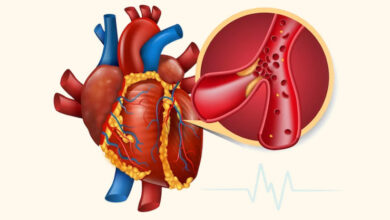What is an existential crisis? How to overcome it?

Have you ever felt that nothing means anything to you at some point in your life, and you question everything: why we were born, where we are going, and our purpose? Existential crisis refers to doubts about the meaning of life, choice, and freedom in it. In this article, we want to discuss existential crisis, its signs and causes, and how to deal with it.
What is an existential crisis?
Existential crisis, which is sometimes called existential anxiety, makes you conclude that life is inherently pointless and our existence has no meaning Because it is full of limitations, and eventually, we will die. Of course, existential crisis and existential anxiety have slight differences, but the main concerns are the same.
This crisis usually occurs when transitioning from one stage of life to another, especially when a person adapts to new conditions. At this stage, he feels that he has lost his security. For example, a student who moves away from his family and moves to another city or a person who has gone through a difficult divorce may feel that the foundation of his life is crumbling and question the meaning of existence.
An overview of existentialism
Existentialism is a general term that philosophers use to consider human actions, feelings, and beliefs. Danish Søren Kierkegaard was the first existentialist philosopher who presented the theories of this school in the 19th century. He believed that each person is responsible for finding the meaning of his life. Contrary to nihilists who say that life has no meaning, existentialists say that man must create the meaning of life himself.
There are seven key themes in existentialism:
Philosophy as a way of life
Every philosopher can and should look within himself to answer the essential questions of life within himself.
originality
Each person should live and act as their true self.
freedom
Everyone is responsible and in control of their values and actions, regardless of society’s values.
Condition
The external factors that surround a person affect his experiences in life.
Existence
People are conscious beings who act independently and not according to what society has predetermined.
The meaninglessness of the world
The world is inherently unfair and has no real meaning except the meaning we each give it. Of course, as we said, this is different from the beliefs of nihilists (who do not even accept the meaning we give to life).
The effect of those around you
Other human beings influence our experience of life.
For existentialists, an existential crisis is a journey: a kind of awareness, a necessary experience, and a complex phenomenon. It comes from being aware of your freedoms and how your life will end one day.
Signs of an existential crisis
Depression is one of the clear signs of existential crisis.
Various symptoms, including the following, may accompany an existential crisis:
- anxiety;
- depression ;
- feeling dizzy;
- isolation;
- lack of motivation and energy;
- Excessive and obsessive worry.
An existential crisis often occurs after a series of significant life events, such as:
- job change ;
- death of a loved one;
- diagnosis of a severe or life-threatening illness ;
- Entering a specific age category, such as 40, 50, or 65 years old;
- a sad or traumatic experience;
- childbearing;
- marriage or divorce _
Although the following mental disorders do not cause an existential crisis, a person with them may be more prone to this problem:
- anxiety;
- borderline personality disorder (BPD) ;
- depression;
- Loneliness;
- Obsessive-compulsive disorder (OCD).
Examples of existential crisis
Existential crisis is a general term used to describe or group many issues. Some of them are:
Fear and responsibility
Existentialism emphasizes that we are all free to choose how we live, and this freedom of choice also brings responsibility. However, since the ultimate destiny of all is death, you may think that everything you do is pointless. So, this freedom may lead to frustration, and the resulting responsibility may cause you anxiety. How often have you struggled to decide and feared it would be wrong? The fear of making the wrong choice indicates a concern about a kind of freedom that is associated with an existential crisis.
Existentialists believe that this anxiety exists in us because there is no right path and no guide to tell us what to do. Each of us must create meaning in life. If this responsibility seems too great, then the person may withdraw and engage in behaviors that protect him from this feeling of anxiety.
The meaning of life
When you struggle with existential anxiety, you often wonder what the point of life is.
When you go on the path of life and realize that you doubt even the meaning of familiar concepts and structures, you question the purpose of life and think to yourself, if I am going to die eventually, why do I take this path?
Albert Camus, the French philosopher, journalist, and author, argued that the ability to be passionate about something that “without it, life would be considered meaningless” shows appreciation for life itself. If you can live your life so that you don’t just focus on getting to the end of something and live for who you are and your path, then you will live a whole, genuine, and passionate life. This is quite different from what is the basis of mindfulness meditation in the medical model of anxiety. Existentialists, unlike psychiatrists, do not consider anxiety to be a disease to be treated; They see anxiety as something inevitable that should be accepted and learned from its positive aspects.
Entering a new phase of life
Many people experience some existential crisis when they enter a new stage of life, such as from childhood to adulthood or from adulthood to old age. Major life events, including graduation, starting a new job or changing careers, marriage, divorce, having children, or retirement, can trigger an existential crisis.
Death and disease
Losing a partner, parent, sibling, child, or other loved one often forces people to face their death and question the meaning of their lives. This also applies to severe or life-threatening illnesses.
Losing faith
This problem happens mostly in religious and believing people. One may doubt whether God exists. Where does our soul go after death?
originality
An existential crisis may lead you to examine the authenticity of existence, which itself causes anxiety. You may think about your mortality and the way you live. When you can no longer be grateful that you wake up every morning, stress sets in. You get to a point where everyday problems don’t matter to you anymore, and all thoughts, fears, and anxiety about trivial matters disappear because you are facing a much bigger problem.
That’s when you ask yourself, at the end of your life, will this matter? Would it matter your job, how much money you had, or what car you drove?
Causes of existential crisis
Usually, it is internal factors that cause existential crises, not external factors. Some of the causes of this crisis are:
- repressed emotions;
- Feeling guilty or regretting something in the past;
- Choices that did not materialize;
- Uncertainty and uncertainty about the future.
These feelings are normal and healthy, but letting them stress you out can cause an existential crisis.
Ways to overcome the existential crisis
Talking to loved ones and realizing how much you value them can help reduce the symptoms of an existential crisis.
Considering that existential anxiety is related to the awareness of death or opportunity in life, such pressure can be regarded as more inevitable than pathological. For this reason, each of us must find a way to accept this anxiety to eliminate it; At least, that’s what existentialists argue.
To overcome existential crisis, we have both practical ways and useless methods. For example, some say it is best to stop living or living. Some say it is better to be so immersed in daily distractions that we don’t feel real life. This may make us no longer have space for existential anxiety, but on the other hand, there is no room for real life. This is a maladaptive coping or avoidance strategy. How many people do you know who are just living without living?
With all this, the crisis also has positive aspects. For example, it can make you question your purpose in life and find the right way if you want to know how to read.
1. Write about it
Can you manage existential anxiety in a way that motivates you and leads you to an authentic life? What can this anxiety teach you about your relationship with the world?
Take a notebook and answer these questions. Writing down their responses will help you find ways to cope with the existential crisis.
2. Ask your loved ones for help.
Talking to people you love can help you gain a different perspective on life. They can remind you of your positive impact on their lives. You find purpose in life when you realize that you matter to others.
3. Try meditation
With the help of meditation, you can replace negative thoughts with positive thoughts, and don’t let anxiety and obsessive worry related to existential crises come to you.
Existential crisis treatment
Although we do not have a specific treatment for existential crises, many helpful treatment methods can help people with existential problems. For example, cognitive behavioral therapy and medication can help relieve symptoms of anxiety, depression, and other mental health issues that may be associated with suicidal thoughts. Self-help treatments such as focusing on positive ideas and actions, volunteering, and enjoying hobbies are often considered depending on the person’s age and situation. These solutions help to eliminate negative thoughts.
Adaptation can also be a good solution. For example, someone with the same problem can help you solve the questions that arise and cause conflict.
Talking with a specialist and therapist can also help reduce existential anxiety. They teach you self-care approaches that focus on finding meaning in life to overcome this crisis.
final word
An existential crisis is an inclusive term for a wide range of issues appearing in different periods or specific conditions in life. For example, when a significant change or event occurs in life, such as marriage, divorce, having children, or retirement, life may lose meaning for a person. Many people who face an existential crisis ask themselves: “What is the meaning of life?” “What is our purpose in living?” or “Why do we work or strive when we die eventually?”. If this crisis remains unresolved, it may have dire consequences.
Have you ever seen signs of an existential crisis in yourself? If your answer is yes, have you been able to overcome it? Please write us your comments.








